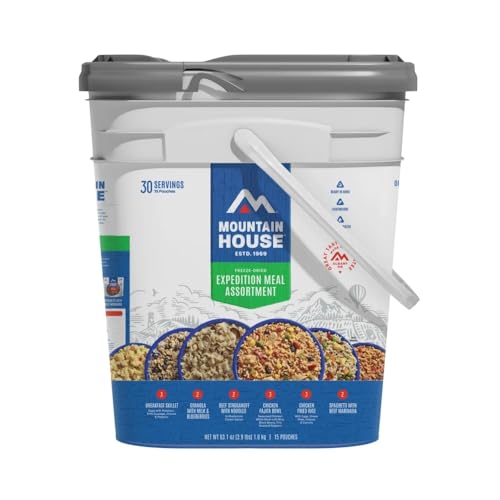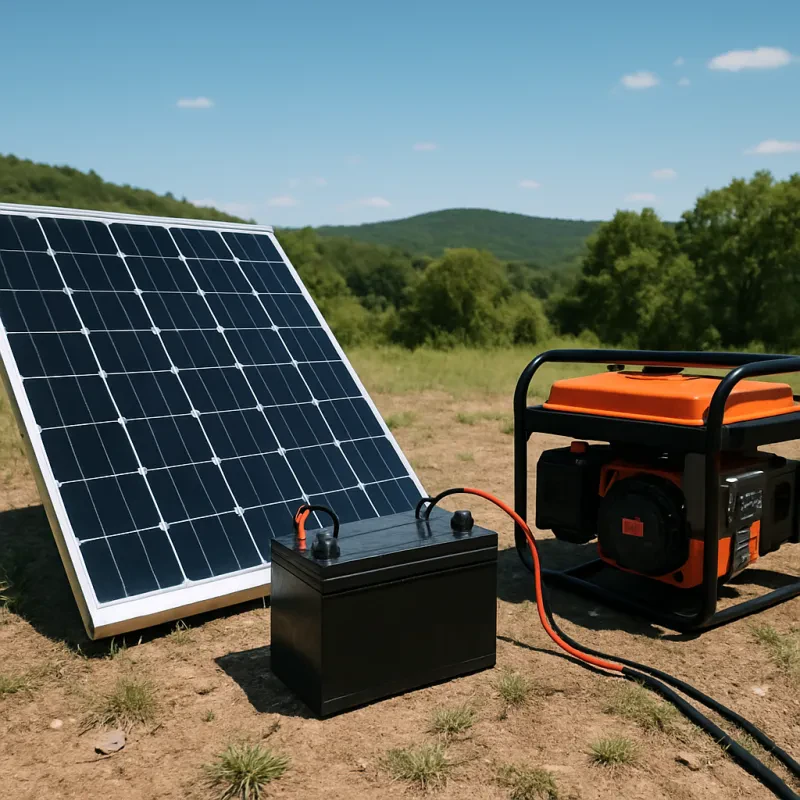Essential Foods for Prepping
When it comes to prepping, having a well-stocked pantry is crucial. In times of emergencies or disasters, access to a reliable food supply may become limited or unavailable. That’s why it’s important to stock up on long-lasting staples that can sustain you and your family during such situations. Here are some essential foods to consider when preparing your emergency food supply:
Canned Goods
Canned foods are a prepper’s best friend. They have a long shelf life and are packed with nutrients. Some key canned goods to have in your pantry include:
- Canned vegetables: Opt for a variety of vegetables like corn, green beans, peas, and carrots.
- Canned fruits: Stock up on canned fruits such as peaches, pears, pineapple, and mandarin oranges.
- Canned meats: Consider having a supply of canned meats like tuna, chicken, and beef, which can be used for protein-rich meals.
- Canned soups and stews: These can provide a comforting and filling meal option during emergencies.
Dried Goods
Dried goods are lightweight, easy to store, and have a long shelf life. They are essential for preppers, as they can be the backbone of your emergency food supply. Here are some dried goods that you should consider stocking up on:
- Rice and pasta: These staples are versatile and can be used as a base for many meals.
- Beans and lentils: High in protein and fiber, beans and lentils are nutritious and filling.
- Flour: Having flour allows you to bake bread, make tortillas, or create other homemade staples.
- Dried fruits: They make for a tasty and nutritious snack, and can also be rehydrated for cooking.
- Nuts and seeds: Packed with essential fats and protein, nuts and seeds provide a good source of energy.
Mountain House Freeze Dried Food Bucket | 30 Servings
Expedition Freeze Dried Camping Food Bucket, packed with 15 pouches | 30 servings of delicious and long-lasting meals
Product information
$176.99
Product Review Score
4.7 out of 5 stars
628 reviewsProduct links
Long-lasting Condiments
While it’s important to focus on staple foods, don't forget about long-lasting condiments that can enhance the flavor of your meals. Here are some condiments to include in your prepping supplies:
- Salt and pepper: These basic seasonings are essential for adding flavor to your dishes.
- Honey: It has a long shelf life and can be used as a natural sweetener or for medicinal purposes.
- Vinegar: Useful for pickling vegetables and preserving food, vinegar is a versatile ingredient.
- Vegetable and olive oil: These oils are essential for cooking and provide a source of healthy fats.
Remember to regularly check and rotate your emergency food supplies to ensure that nothing goes to waste. Additionally, supplement your long-lasting foods with other perishable items like fresh produce, as available. By preparing an emergency food supply with these essential long-lasting staples, you can have a sense of security knowing that you and your loved ones will have enough to eat during challenging times.
Nutrient-rich Superfoods Are a Great Choice For a Well-rounded Prepper's Pantry
In times of uncertainty or emergency situations, having a well-stocked pantry is crucial. As a prepper, it's important to plan ahead and ensure you have essential foods that can sustain you and your family. While stocking up on staples like grains, canned goods, and long-lasting food items is essential, including nutrient-rich superfoods in your prepper's pantry will provide an added boost of health and vitality.
The Benefits of Superfoods
Superfoods are nutrient-packed foods that provide numerous health benefits. They are rich in antioxidants, vitamins, minerals, and other beneficial compounds that support overall well-being, particularly during challenging times. Integrating superfoods into your prepping strategy will not only provide nourishment but also potentially strengthen your immune system and overall resilience.
Key Superfoods for Your Prepper's Pantry
1. Chia Seeds: These tiny seeds are packed with omega-3 fatty acids, fiber, and protein. They are a fantastic addition to any pantry as they can be easily incorporated into meals or used for sprouting.
2. Quinoa: A complete source of protein, quinoa is also high in fiber and loaded with minerals such as magnesium, iron, and zinc. It is a versatile grain alternative that can be used in a variety of meals.
3. Kale: Known as a nutritional powerhouse, kale contains an array of vitamins and minerals, including vitamins A, C, and K, as well as calcium and iron. It can be grown easily and is an excellent addition to salads, smoothies, or cooked dishes.
4. Spirulina: A nutrient-dense blue-green algae, spirulina is rich in protein, vitamins B and E, iron, and antioxidants. It can be stored in powder form and incorporated into smoothies or energy bars.
5. Hemp Seeds: Packed with protein, healthy fats, and omega-3 fatty acids, hemp seeds are an excellent addition to your prepper's pantry. They can be sprinkled on salads, yogurt, or used in baking.
Preparing and Storing Superfoods
Superfoods like chia seeds, spirulina, and hemp seeds can be stored in airtight containers, away from light and moisture, to maintain their freshness and quality. Quinoa and kale can also be stored long-term if stored properly in cool and dry conditions. It's essential to check for expiration dates and rotate your stock to ensure you always have fresh superfoods available.
Integrating nutrient-rich superfoods into your prepper's pantry will not only enhance the nutritional quality of your meals but also provide long-lasting sustainability. Remember to regularly assess your stockpile, plan your meals accordingly, and dedicate a portion of your storage space to these superfoods for their immense health benefits.
Quick and Nourishing Recipes to Include
Introduction
In times of emergencies or uncertain events, having a well-stocked pantry and meal prepped recipes can be a lifesaver. Whether you're dealing with a natural disaster, power outage, or simply wanting to be prepared for any unexpected situation, meal prepping ensures that you have nourishing and convenient meals readily available. In this article, we'll explore some quick and nourishing recipes that are perfect for meal prepping in emergencies.
1. Mason Jar Salads
Mason jar salads are a fantastic option for meal prepping as they are easy to assemble, have a good shelf life, and stay fresh for several days. Layer the ingredients in a wide-mouth mason jar, starting with the dressing at the bottom and adding the heartier ingredients on top. When you're ready to eat, simply shake the jar to coat the salad with the dressing and enjoy a refreshing and nutritious meal.
2. One-Pot Meals
One-pot meals are a great choice for emergency meal prepping as they require minimal cooking utensils and can be prepared with non-perishable ingredients. Consider recipes like chili, vegetable soup, or pasta with canned meats or beans. These meals are not only filling but also provide a good balance of nutrients essential for your health.
3. Protein Bars
Protein bars are a convenient and portable option for emergencies, providing a quick burst of energy and essential nutrients. You can easily make protein bars at home using ingredients like oats, nuts, dried fruits, and protein powder. Cut them into individual portions and store them in airtight containers, making them an ideal grab-and-go snack during emergencies.
4. Nut Butter and Crackers
Nut butter and crackers are a simple yet nutritious option that can be prepared in no time. Nut butters such as peanut or almond butter offer a good source of protein and healthy fats. Pair them with whole-grain crackers and you have a balanced and satisfying snack. Consider portioning nut butter into small, sealed containers for quick and easy access.
5. Dehydrated or Freeze-Dried Meals
Dehydrated or freeze-dried meals are specifically designed for emergencies and outdoor activities. These meals often come in compact packaging and have a long shelf life. They require minimal preparation, usually just adding hot water. While they may not offer the freshness of homemade meals, they provide the necessary nutrients during critical moments.
During emergencies, having nourishing meals readily available is crucial. By meal prepping using the above recipes, you can ensure that you and your family stay well-nourished even in challenging times. Remember to regularly check and rotate your emergency food supplies to maintain freshness and be well-prepared for any situation that may arise.



